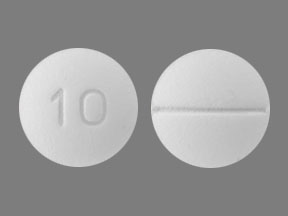
Escitalopram Coupons & Savings Card – Discount Prices from $4.00
Generic for: Lexapro
My prescription
Edit
10MG, Escitalopram (30 Tablets)
Select pharmacy

CVS
$19.17
COUPON PRICE
Walmart
$4.00
COUPON PRICE
Walgreens
$10.33
COUPON PRICE
Albertsons
$12.45
COUPON PRICEEscitalopram savings card
Show this card to your pharmacist
Walmart
$4.00
BIN
ID
PCN
GRP
019876
LH59224314
CHIPPO
LHX
Powered by
More prescriptions for depression
More prescriptions for depression
Price history for Lexapro (brand) & Escitalopram (generic)
30 Tablets, 10MG
Average retail price for Lexapro
Average retail price for Escitalopram
Average SaveHealth price for Escitalopram
Our price history data is based on aggregated prescription data collected from participating pharmacies in America. Our prescription data updates daily to reflect the latest price changes. If you notice a missing data point, it means there wasn't sufficient data available to generate a monetary value for that date.
We analyzed Escitalopram prices for (10MG, 30 Tablets) over the last 12 months. The average retail price was $68.78, while the average price using the SaveHealth discount card was $15.90. That's a savings of approximately 76.88% when using our Escitalopram coupon.
Compared to the generic version, Lexapro had an average price of $602.18 over the same time period. With the SaveHealth savings card, Escitalopram is 97.36% cheaper on average than Lexapro.
*Retail prices are based on pharmacy claims data, and may not be accurate when we don't have enough claims.
Escitalopram dosage forms
Dosage Quantity Price from Per unit 5MG 30 Tablets $3.89 $0.13 5MG 45 Tablets $4.59 $0.10 5MG 60 Tablets $5.28 $0.09 5MG 90 Tablets $13.18 $0.15 5MG 180 Tablets $22.70 $0.13 10MG 30 Tablets $4.00 $0.13 10MG 45 Tablets $4.75 $0.11 10MG 60 Tablets $5.50 $0.09 10MG 90 Tablets $13.49 $0.15 10MG 135 Tablets $20.73 $0.15
| Dosage | Quantity | Price from | Per unit |
|---|---|---|---|
| 5MG | 30 Tablets | $3.89 | $0.13 |
| 5MG | 45 Tablets | $4.59 | $0.10 |
| 5MG | 60 Tablets | $5.28 | $0.09 |
| 5MG | 90 Tablets | $13.18 | $0.15 |
| 5MG | 180 Tablets | $22.70 | $0.13 |
| 10MG | 30 Tablets | $4.00 | $0.13 |
| 10MG | 45 Tablets | $4.75 | $0.11 |
| 10MG | 60 Tablets | $5.50 | $0.09 |
| 10MG | 90 Tablets | $13.49 | $0.15 |
| 10MG | 135 Tablets | $20.73 | $0.15 |
| 20MG | 30 Tablets | $5.16 | $0.17 |
| 20MG | 45 Tablets | $6.49 | $0.14 |
| 20MG | 60 Tablets | $7.83 | $0.13 |
| 20MG | 90 Tablets | $16.99 | $0.19 |
| 20MG | 135 Tablets | $23.39 | $0.17 |
